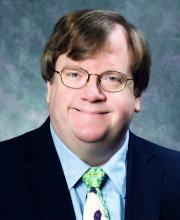The optimist says the glass is half-full. The pessimist says it is half-empty. An engineer says the glass is twice as large as needed to contain the specified amount of fluid. To some people, that mindset makes engineers negative people. We focus on weaknesses and inefficiencies. A chain is only as strong as its weakest link. There is no partial credit when building a bridge. 98% right is still wrong.
When I worked as an engineer, critiquing ideas was a daily activity. I am used to conflicting opinions. Industry trains people to be professional and act appropriately when disagreeing with a colleague. Tact is the art of making a point without making an enemy. Engineering has a strong culture of focusing on a problem rather than on personalities. Upper management made it clear that in any turf war, both sides will lose. Academia has a different culture. Turf wars in academia are so bitter because the stakes are so small.
Pediatrics has less confrontation and competitiveness than do other subspecialties. That makes the work environment more pleasant, as long as every other group in the hospital isn’t walking all over you. Pediatricians often view themselves as dedicated to doing what is right for the children, even to the point of martyrdom. Some early pediatric hospitalist programs got into economic trouble because they adopted tasks that benefited the children but that weren’t being performed by other physicians precisely because those tasks were neither valued nor compensated. Learning to say “No” is hard but necessary.
As a clinical ethics consultant, I was consulted when conflict had developed between providers and patients/parents or between different specialties. Ethics consults are rarely about what philosophers would call ethics. They are mostly about miscommunication, empowering voices to be heard and clarifying values. Practical skills in de-escalation and mediation are more important than either law or philosophy degrees.
There are downsides to avoiding confrontation. Truth suffers. Integrity is lost. Goals become corrupted. I will give two examples. One ED had a five-level triage system. Level 1 was reserved for life-threatening situations such as gunshot wounds and resuscitations. So I was surprised to see a “bili” baby triaged at Level 1. He was a good baby with normal vitals. Admission for phototherapy was reasonable, but the urgency of a bilirubin of 19 did not match that of a gunshot wound. A colleague warned me not to even consider challenging the practice. A powerful physician at that institution had made it policy years earlier.
I witnessed a similar dynamic many times at that institution. Residents are even better than 4-year-olds at noticing hypocritical behavior. Once they perceive that the dynamic is political power and not science, they adapt quickly. A couple days later, I asked a resident if he really thought an IV was necessary for a toddler we were admitting. He replied no, but if he hadn’t put an IV in, the hospital wouldn’t get paid for the admission. To him, that was the unspoken policy. The action didn’t even cause him moral distress. I worry about that much cynicism so early in a career. Cognitive dissonance starts small and slowly creeps its way into everything.
The art of managing conflict is particularly important in pediatric hospital medicine because of its heavy investment in reducing overdiagnosis and overtreatment. Many pediatric hospitalists are located at academic institutions and more subject to its turf wars than outpatient colleagues practicing in small groups. The recent conference for pediatric hospital medicine was held in Atlanta, a few blocks from the Center for Civil and Human Rights. That museum evokes powerful images of struggles around the world. My two takeaway lessons: Silence is a form of collaboration. Tyrannical suppression of dissent magnifies suffering.
In poorly managed academic institutions, it can be harmful to one’s career to ask questions, challenge assumptions, and seek truth. A recent report found that the Department of Veterans Affairs health system also has a culture that punishes whistle-blowers. Nationally, politics has become polarized. Splitting, once considered a dysfunctional behavior, has become normalized. So I understand the reluctance to speak up. One must choose one’s battles.
Given the personal and career risks, why confront inaccurate research, wasteful practices, and unjust policies? I believe that there is a balance and a choice each person must make. Canadian engineers wear an iron ring to remind themselves of their professional responsibilities. Doctors wear white coats. Personally, I share a memory with other engineers of my generation. In January 1986, NASA engineers could not convince their managers about a risk. The space shuttle Challenger exploded. I heard about it in the medical school’s cafeteria. So for me, disputation is part of the vocation.
Dr. Powell is a pediatric hospitalist and clinical ethics consultant living in St. Louis. Email him at pdnews@mdedge.com.


